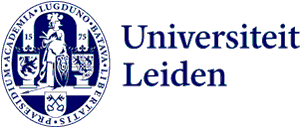Conference | Symposium
Faculty Symposium 2022: Humanities in Crises
- Date
- Friday 17 June 2022
- Time
- Address
-
Lipsius
Cleveringaplaats 1
2311 BD Leiden
The world is transitioning out of a global pandemic, extreme weather conditions are becoming common as the world warms and a brutal war has once again erupted on the European continent, while long-lasting armed conflicts rage on elsewhere. In the media, analyses and explanations from the perspectives of various disciplines, whether those be medical, geopolitical, economic, ecological or other, are up front and center – but how do the humanities fit into all this? How come writers and journalists are often prime targets of totalitarian regimes? What is the role of language policies in sociopolitical conflicts? How can emerging fields of humanities help spur climate action?
The 2022 Faculty Symposium will serve as an illustration of the non-negligible importance of reflection from the viewpoint of humanities in crises.
Programme
|
10:00-10:15 |
Opening |
|
|
10:15-11:00 |
Lipsius 0.11 Gerechtigheid in boekvorm – hoe fictie werkelijkheid werd
Journalist en schrijver Bart Ledegang begon zijn roman De Perfect Onmenselijke om het indrukwekkende levensverhaal van zijn Rwandese vriendin Josephine met een fictieve afloop op te tekenen. Gaandeweg zijn onderzoek kreeg het schrijfproces een verrassende wending waarbij de fictie ineens angstig realistisch werd. |
|
|
11:15-12:00 |
Lipsius 0.11 Dr. Michael Newton (EN) Stolen Air - Writers’ responses to the upheaval of war
This lecture has two themes or questions: one is how have writers responded to the crisis of war and of state oppression? The other is why is it that totalitarian and authoritarian regimes attack and pursue poets and novelists? What is it in literature that so disturbs and provokes them?
|
Lipsius 2.27 Dr. Renske Janssen (NL) Christenen voor de leeuwen? Vroeg Christendom in een Romeins juridische context
De Romeinse keizertijd staat bij velen nog steeds bekend als een periode van langdurige, diepe crisis voor het vroege christendom, waarin deze nieuwe religieuze beweging vrijwel continue onder grote externe druk stond. In deze lezing zal dit beeld genuanceerd worden door stil te staan bij de bredere juridische context van de bekende interacties tussen christenen en de Romeinse autoriteiten: waarom werden er maatregelen tegen christenen genomen, en hoe werden deze uitgevoerd? En was de behandeling van christenen eigenlijk wel zo uniek als vaak wordt aangenomen?
|
|
12:15-13:00 |
Lipsius 0.11 A Harsh Reality: Contextualizing a New Spiritual Response to Devastating Crises
Younger generations have inherited various devastating crises ranging from climate change to social injustice. In the absence of direct societal change, adolescents and young adults have to cope individually with these crises as well. Reality Shifting, the attempt to transport one’s consciousness to other—more optimal—realities, is one such individual response. So far, the academic response to this phenomenon has been to reduce it to a culture of daydreaming. We offer a more thorough contextualization of reality shifting that takes the roots of the phenomenon and the problems and wishes of its practitioners seriously—thereby showing the role the humanities can play in combatting the oversimplifying tendencies of academia as a whole. |
|
|
13:00-14:00 |
Lunch |
|
|
14:15-15:00 |
Lipsius 0.11 Het genocideargument van Rusland en de taalsituatie in Oekraïne
Een belangrijke reden voor Rusland om Oekraïne binnen te vallen is om het land te denazificeren en de vermeende onderdrukking van de Russischtalige bevolking in Oekraïne te stoppen. In deze lezing ga ik in op de vraag wat er waar is van de claim van Rusland over genocide op Russen, en ga ik in op de taalsituatie in Oekraïne en de taalpolitiek van Oekraïne. Zoals ik zal laten zien moet het gebruik van de term “genocide” door Rusland vooral gezien worden als een onderdeel van de Russische propaganda, en is het onderdeel van een breder retorische frame. Met de taalsituatie van Oekraïne of de taalpolitiek van Oekraïne heeft dit niet veel te maken.
|
Lipsius 2.27 Between power and powerlessness: navigating privilege and oppression
Economic and social injustices, amplified by the pandemic and now deeply felt in northern geographies through the proximity of war, challenge popular narratives of meritocracy and endless growth. How can the humanities support us in making sense of these recent developments and collectivizing our varied yet intricate (localized and individual) struggles? |
|
15:15-16:00 |
Lipsius 0.11 Geluk is.. een crisis? Over tevredenheid, literatuur en verandering
Is het mogelijk om gelukkig te zijn in een tijd waarin de ene na de andere noodtoestand wordt uitgeroepen? En wat betekent dat dan? Beter leren zorgen voor jezelf? Genieten van de kleine gelukmomenten? Tevreden leren zijn met wat je hebt? Of juist in opstand komen? Tegen wie of wat? In deze lezing wordt belicht hoe dergelijke vragen in recente romans worden gesteld en verkend.
|
Lipsius 2.27 |
|
16:15-18:15 |
Lipsius 0.11 |
|
